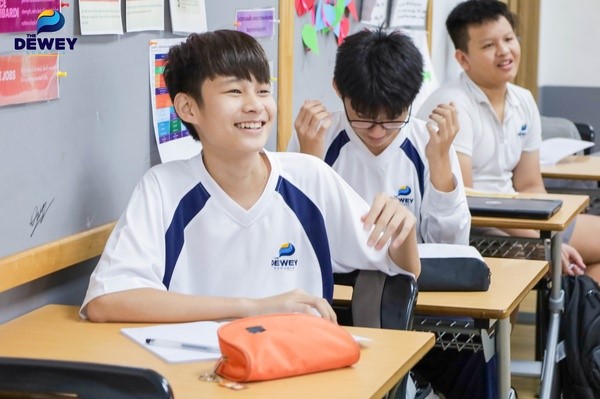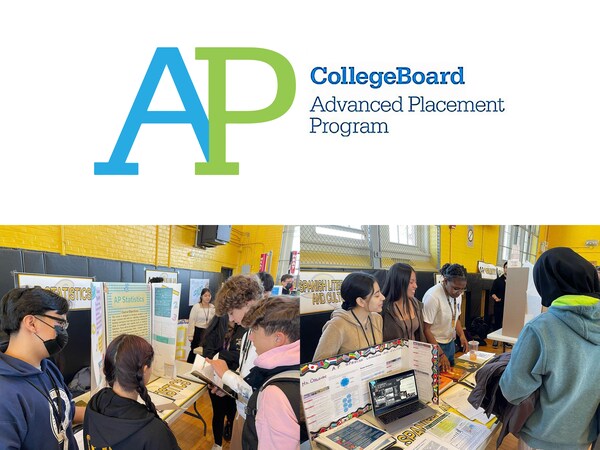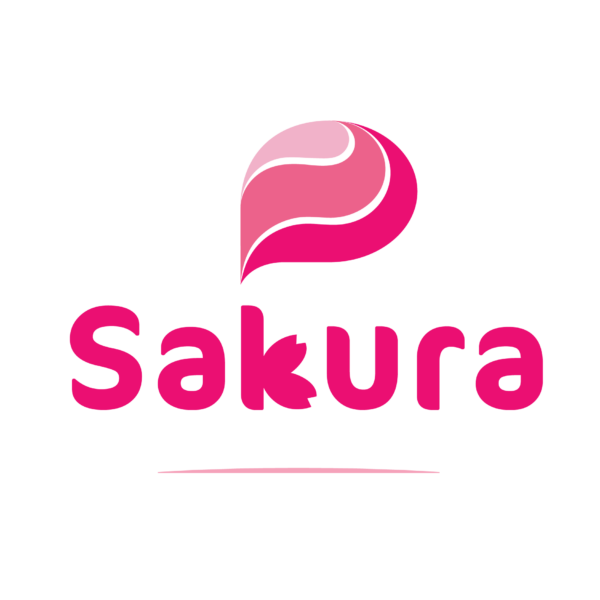International education programs are a growing interest for many parents in Vietnam, who seek the best pathways for their children’s future. These programs are designed to equip students with the knowledge, skills, and experiences needed for a global future. The rise of international education systems has made it easier for students to receive a world-class education without leaving the country. Below is a detailed overview of the top international education programs available in Vietnam today, helping parents make informed decisions for their children’s educational journey.

Exploring Leading International Education Programs in Vietnam
The demand for international education systems has been on the rise, with many parents opting for schools with modern facilities and a curriculum designed to meet global standards. These programs offer students the opportunity to grow academically, socially, and personally. Students engage in enriching extracurricular activities, hone critical thinking skills, and build essential life skills, preparing them to become responsible global citizens. Some of the most renowned international education programs available in Vietnam include:
International Baccalaureate (IB) Program
The International Baccalaureate Diploma Programme (IBDP or IB) is a certification awarded by Switzerland to students who complete the international secondary school program. The certification is widely recognized worldwide and is used as a part of university applications, including in popular study-abroad destinations such as Canada, Australia, the UK, and the US.
The IB Diploma Programme is an international educational program with a humanistic philosophy, emphasizing self-awareness, intellectual application, and high academic standards, while promoting the ideals of international understanding and respect for intercultural values. The program encourages students to become active learners, capable of lifelong learning, with compassion and understanding, and respect for the differences of others.

The IB program emphasizes intellectual challenges and focuses on learning through interdisciplinary approaches. This helps students develop emotional intelligence, motivation, cultural knowledge, openness, thinking, and life skills. These are essential traits for individuals to become responsible citizens, whether at the national or global level.
Structure
The IB Diploma Programme lasts for two years and includes six main areas: Language and Literature, Self-Development and Sociology, Mathematics, Sciences, and Arts. The courses are divided into two levels: Standard Level (150 hours) and Higher Level (240 hours). Students must also complete two essays on assigned and self-selected topics. Additionally, the program requires mandatory participation in extracurricular activities.
Each subject is graded on a scale from 1 to 7, with 3-4 subjects at the Higher Level and the remaining subjects at the Standard Level. Students need to achieve a minimum of 24 points across all subjects to graduate and receive the certification.
Learning Pathway
The IB course provides students with a comprehensive learning experience, including both academics and activities. The workload and graduation requirements are challenging. Once students get accustomed to the training methods and learning approach, they are better equipped to participate in the rigorous learning environment of international universities, meeting the academic requirements of foreign bachelor’s programs.
Benefits
The IB education program offers several benefits to students when applying for university abroad:
- Credit Reduction: Many prestigious universities, such as Yale University, University of Melbourne, Harvard University, and McGill University, offer credit reductions for students with an IB diploma. In particular, Texas allows students to reduce 24 out of 30 credits in their first year of university.
- Scholarship Opportunities: The IB program prepares students to stand out in university applications. In fact, many IB graduates have received university scholarships and graduated with higher academic standards.

A-Level Program (Advanced Level)
The General Certificate of Education Advanced Level (A-level or GCEA Level) is a certification used as a standard for evaluating and admitting candidates in the United Kingdom, Wales, and Northern Ireland. This certification is recognized by most schools and is a prestigious qualification that helps students easily apply to many universities worldwide.
A-level is the standard UK educational program designed to support students’ development, focusing on five globally relevant qualities. Students are trained to become responsible, confident, creative, highly responsive, and more connected to the world. The program is designed to maximize academic support, offering excellent opportunities for learners to pursue their academic passions and acquire valuable skills for learning, life, and future careers.

A-Level is trusted by a number of world-class universities.
Program Structure
The A-level program in Vietnam spans two years. The first year is an advanced preparatory course, while the second year is known as the A2 year. The program includes 55 subjects, and the list of subjects may vary depending on the training school.
Learning Pathway
The A-level program allows students to choose their subjects, with no maximum limit on the number of subjects. As a result, many students opt to study 3 to 5 subjects throughout the two years.
Benefits of the Program
A-level is a highly regarded educational program that offers many benefits to students who have already decided on their major for university. Students are allowed to choose subjects according to their preferences, which helps save on costs and study time, reducing unnecessary subjects. However, it also provides an opportunity for students who have not yet decided on a major and need to explore subjects to guide their future career paths.
A-level is a prestigious qualification widely recognized around the world. It is used for applying to prestigious international universities (such as Cambridge, Oxford…), studying abroad, attending international universities in Vietnam, vocational education, or apprenticeships.
Oxford International Education Program
The Oxford International Education Program was developed by the team from Oxford University Press, following the UK educational framework. In this program:
The Oxford education program places the joy of learning for students as its central goal, combining methods to nurture emotional well-being, health, and the development of global skills. Students’ learning is based on three key factors: health, happiness, and humanity. The program focuses on fostering physical and mental well-being, creating joy and interest in learning, and developing the essential skills that enable students to solve problems using the most reasonable solutions.

The Oxford International Education Program was developed by the team from the Oxford University Press.
Program Structure
The Oxford education program includes five main subjects: Mathematics, Science, English, Health and Social Emotional Management, and Global Skills Projects, all taught in English. In Vietnam, the program is integrated with the national curriculum and talent development, providing students with the necessary knowledge and skills to be active learners.
Learning Pathway
The Oxford International Program is built upon a foundation designed for success in international secondary exams such as the International GCSE, A-Level, AS, and the international Oxford AQA exams. By participating in the program, students have the opportunity to learn and work in an international environment.
Program Benefits
The Oxford program fosters curiosity, encourages creative thinking, and helps shape the future in the most appropriate way for each student. It builds a foundation for future success and prepares students for admission to top universities worldwide, especially in developed countries like the US, UK, Australia, and Singapore.
Common Core (USA)
The Common Core International Education Program is designed and built based on the American education system, following the standards from CCSS – Common Core State Standards and NGSS – Next Generation Science Standards.
The Common Core International Education Program is a scientific system that incorporates a three-dimensional learning concept: continuity, practical science and technology, and core ideas. Based on this, the program defines the essential knowledge that students need to learn and develop for their future careers.

The Common Core International Education Program is widely applied in Vietnam.
Program Structure
The Common Core education program includes three main subjects taught in English: English, Mathematics, and Science. The program structure helps students acquire the necessary knowledge while developing important skills such as critical thinking, creativity, collaboration, and communication. It also integrates extracurricular activities and other subjects to ensure students’ overall development.
Learning Pathway
Students engage in learning to acquire basic knowledge and participate in extracurricular activities. Through the learning process, they develop and refine the skills they lack, helping them improve and become better versions of themselves.
Program Benefits
Students experience and enhance their adaptability through comprehensive learning methods, making it easier for them to integrate into international university learning environments in the future. The Common Core program provides the knowledge and skills necessary for students to meet the requirements when pursuing higher education programs in international learning environments.
Advanced Placement (AP) Program
The Advanced Placement (AP) International Education program is offered by the College Board, USA (the organization that administers the SAT and TOEFL exams). The AP exam is for high school students who have strong academic performance, good attitudes toward learning, and a desire to attend prestigious universities worldwide. It is an ideal option for students who are interested in exploring specialized subjects (such as Psychology, Economics, Biology, etc.) and are preparing for undergraduate programs. The AP program helps students make a smoother transition to studying abroad in universities in Canada or the US.

Advanced Placement offers 22 fields of study with a total of 38 subjects
Program Structure
Advanced Placement includes 22 fields of study with a total of 38 subjects such as History and Science, AP Projects, Mathematics and Computer Science, English, Arts, Linguistics, and Culture. AP allows students to earn college credits while still in high school, thus achieving knowledge equivalent to the first year of college and relatively higher than the average student.
The AP program is designed to assess students’ readiness for college and reflect their academic achievements in high school. Therefore, the requirements for the AP program are higher than those of regular high school classes. The Advanced Placement course is intended for students who are determined to succeed in college entrance exams and have strong academic abilities.
Learning Pathway
In the AP program, students typically take 3 or 4 courses over one year, and in the final year, they may take up to 7 courses. Upon completion of the program, students must take exams consisting of multiple-choice and essay-based questions. The exam is scored on a scale from 1 to 5 (with 5 being the highest score).
Program Benefits
By earning an AP certificate, students can use the results to apply to universities and gain many advantages:
- Showcasing their abilities: The results from the AP program demonstrate students’ seriousness, academic ability, and preparation for university programs. As a result, students are often highly regarded when applying to universities and have greater chances of being admitted.
- Easier adaptation: Students enrolled in the AP program take in-depth specialized subjects and accumulate essential learning skills such as research, collaboration, and project work. This helps them adapt more easily to university programs and avoid feeling overwhelmed when transitioning to study in other countries.
- Saving time and costs: Students who successfully complete 3-4 AP courses have the opportunity to receive up to one year of credit exemption at universities in Canada, the US, or Ivy League schools such as Stanford, Harvard, Yale, Princeton, and Columbia. This means savings on accommodation, tuition, and time for final internships, while also quickly earning a bachelor’s degree.
IGCSE
The IGCSE (International General Certificate of Secondary Education) program is a two-year program for grades 10 and 11 that is increasingly popular and positively received by many students. The program offers flexibility in subject selection, providing 70 different subjects to ensure students are well-equipped academically in their chosen fields.
Program Structure
For the IGCSE program, students must take at least 5 subjects and can choose up to 14 subjects from the 70 available options. The core subjects include English, Science, and Mathematics, while the elective subjects include Social Sciences (Accounting, Economics, Business Studies, Sociology), Arts and Design, and Technology (Information and Communication Technology, Computer Science). The program offers various learning pathways at different levels to accommodate various types of students, including those for whom English is not the first language.
Upon completion of the program, students must sit for exams in at least 7 subjects from 5 groups: Languages, Science, Social Sciences and Humanities, Mathematics, and Creative, Technical, and Vocational subjects. Students need to pass at least 7 exams, with 2 from the Languages group and 1 from any of the other groups, in order to receive the certificate.

IGCSE – International General Certificate of Secondary Education
Learning Pathway
The IGCSE program lasts for 1 or 2 years, depending on the country, with no official age requirement. In Vietnam, the program typically lasts 2 years for students aged 14 to 17. Most schools implement the IGCSE program alongside the national education curriculum. To provide diverse educational options, students can choose between the core and extended program for subjects that match their individual level, with a focus on 3 core subjects: Science, English, and Mathematics.
Program Benefits
The IGCSE is globally recognized and is equivalent to certifications such as the Fifth Form (secondary education program in the UK, Wales, and Northern Ireland), O-Level, and GCSE (UK). Universities and colleges around the world, including those in the UK, Australia, Canada, and others, accept results from applicants with this certification.
Moreover, after graduation, candidates with an IGCSE certificate are highly regarded by employers for their ability to work effectively, thus enhancing their prospects for career advancement.
This summary outlines some of the most popular international education programs currently offered in Vietnam. Each program is designed based on specific standards and guidelines. Therefore, to make the most appropriate and ideal choice for their children, parents should consider their goals and specific future directions.


























